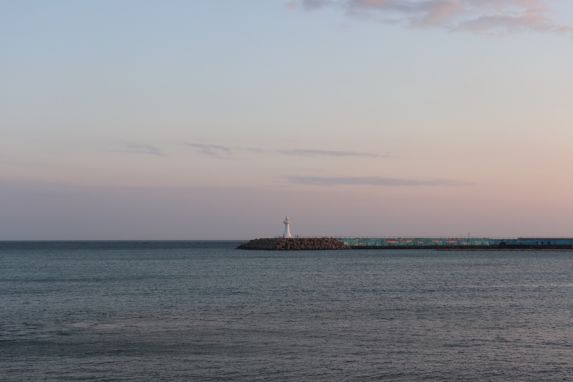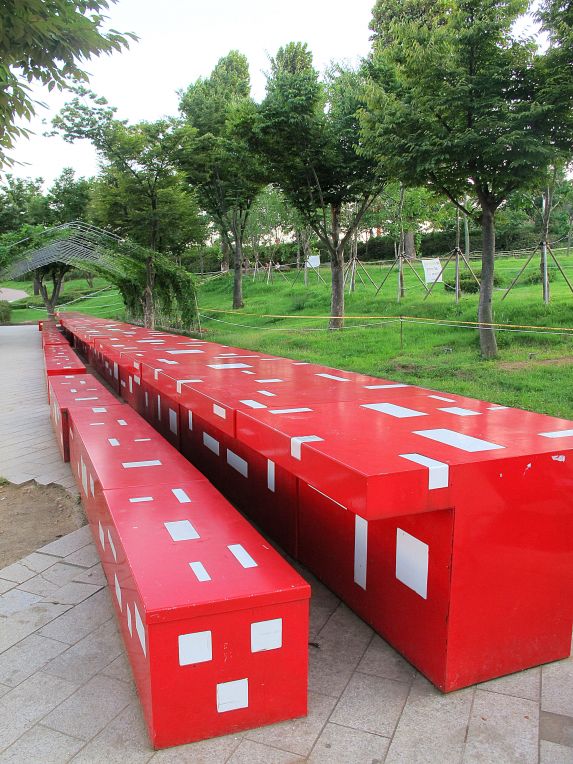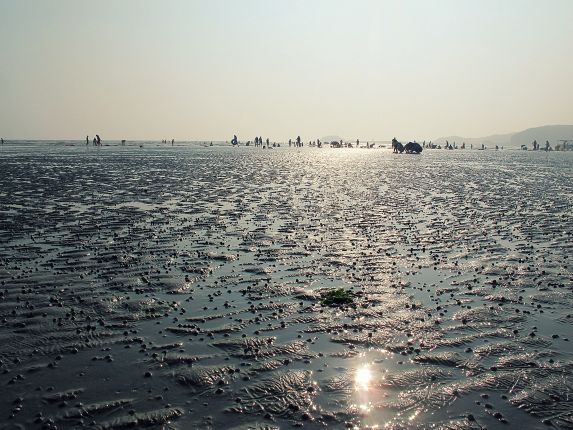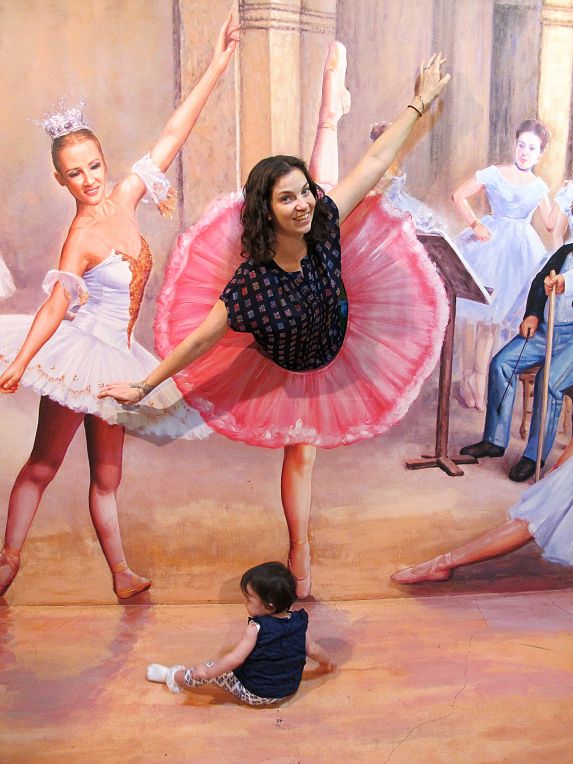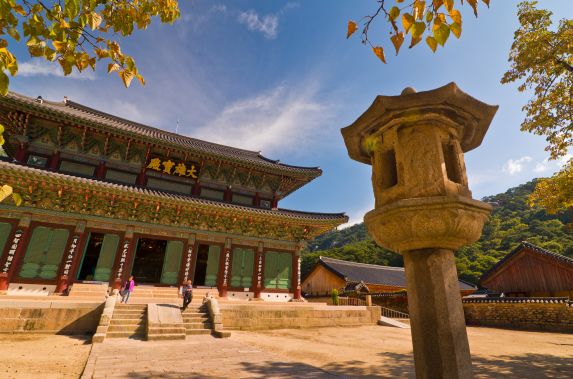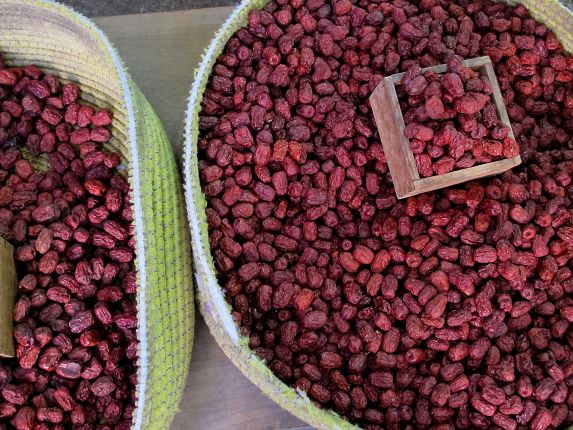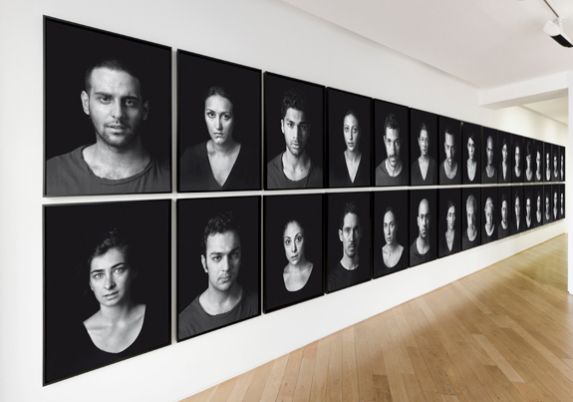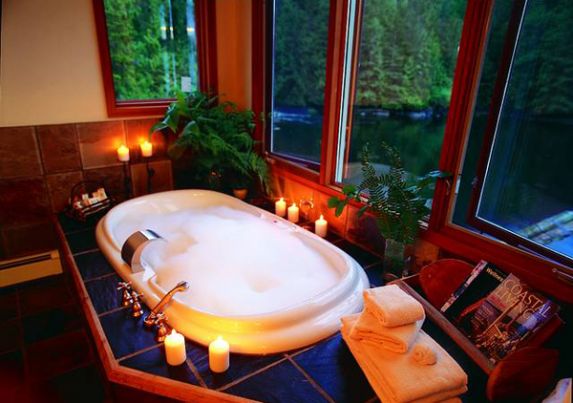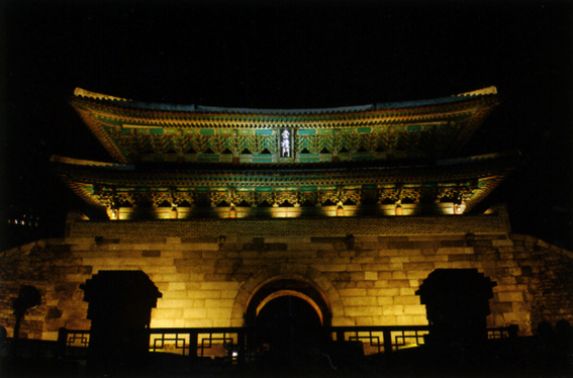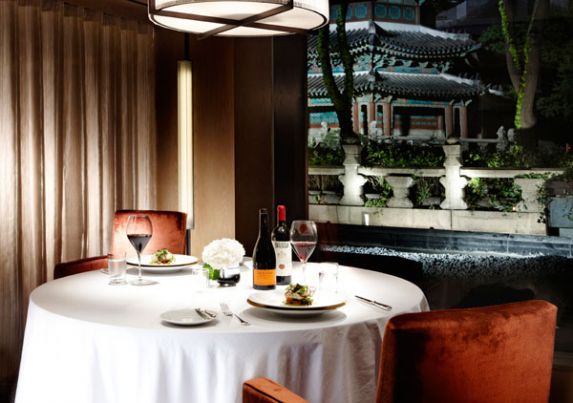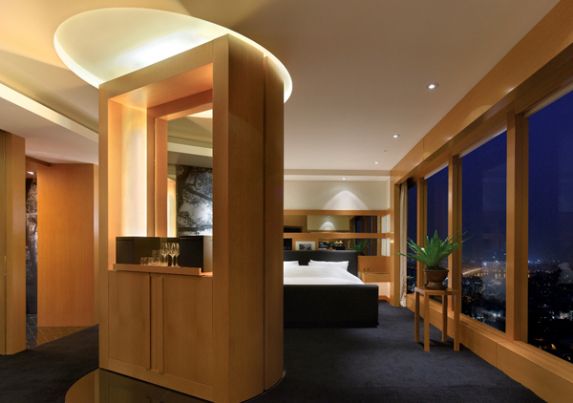Hamo Beach, Jeju Island
Written by Jessica LimJeju Island, or Jeju-do, located just below the Korean Peninsula, is a popular place to tour when in South Korea. From climbing up a shield volcano named Hallasan to exploring the numerous kinds of delicious seafood, Jeju-do has much to offer, including the best places to watch the sunset.
West Seoul Lake Park
Written by Guest PostAfter being closed to the public for 50 years, the West Seoul Lake Park, or Seoseoul Lake Park (서서울호수공원), reopened in October of 2009.In the name of ecology and beautification, the park reclaimed the Sinwol Water Purification Plant, which was transformed under the themes of “water” and “recycling”; some of the existing piping and filtering tanks were reused so that they are now sculptures and benches in this beautifully landscaped park. The West Seoul Lake Park is truly breathtaking, and for those out there who enjoy the addition of industrial paths that weave through a natural setting as if climbing through a forgotten land, this park is a must-visit while in Seoul.
24 Hours in Taean-gun
Written by Guest PostSometimes the hustle and bustle, noise and chaotic surroundings of Seoul can become a bit too much to handle, and a quick getaway becomes necessary to maintain sanity. During the summer, the humidity can be so intense in the city that taking a walk is more like swimming through hot, heavy air, and the only cure to really get that deep breath is to find a breezy coast and calming ocean tide sounds. Taean-gun (태안군) is a perfect place for a weekend getaway during a weekend in any season.
Trick Eye Museum
Written by Seoul JournalThe TrickEye Museum in Hongdae recently had 60% of their artwork revamped and I, along with some friends, was invited out to have some fun and see what they had to offer. Visitors can step into the exhibits and are invited to touch and photograph the artwork to see how the 2D paintings become 3D optical illusions while becoming part of the artwork themselves. The floors, ceilings and walls have been painted with vibrant colors, and arrows are placed on the floor where the photographer should stand to get the full effect on camera, allowing them to capture these “trick of the eye” techniques.
Gyeongju was once the capital of the ancient kingdom of Silla that ruled about two-thirds of the Korean Peninsula between the 7th and 9th centuries. The city is incredibly rich in history, with plenty of treasures to explore. I arrived in Gyeongju and instantly noticed, while in the taxi to my guesthouse, how flat everything is. Gyeongju is probably one of few cities in Korea that hasn’t been overrun with high rises. I’m used to seeing huge apartment buildings when I go into cities, but not here. That was the first sign that I was going to enjoy my time in this city.
During the Joseon Dynasty some 600 years ago, the medical institution Bojewon was set up in Jegi-dong. ‘Won’ means an inn that was located along a main thoroughfare. These inns provided food and lodging to travelers with government-related work or public missions. There were numerous inns around the city of Seoul including Itaewon, Hongjewon near Seodaemun, and Jeon-gwanwon near Gwanghuimun. Bojewon was not only an inn, though, as it also housed an oriental medicine clinic that provided medical treatments and advice to the poor and those seeking help in the city. With this historical background, it was no wonder that in the late 1960s when the Seoul Government was looking for a place to set up an herbal market, they chose this location. Now Yangnyeongsi (약령시) is the largest herbal medicine market in Korea with over 1,000 traditional medicine related businesses in the area.
Modern Art Exhibitions
Written by Seoul JournalNational Museum of Modern and Contemporary Art
The National Museum of Modern and Contemporary Art is hosting a number of temporary exhibitions this summer. The artists on display are varied from Korean, to international, as well as hot new up-and-coming artists, to artists with long and illustrious careers. It is the objective of MMCA to provide a retrospective of the tradition of modern art as well as the new trends of today. The museum has three branches: Gwacheon, Seoul and Deoksugung. Each branch is closed on Monday. The Gwacheon location is family friendly as it has a children’s gallery.
LUXURIOUS ECO TOURISM
Written by Seoul JournalAccessible only by floatplane, a luxurious floating lodge operates for four months a year in the heart of British Columbia’s Great Bear Rainforest, one of the last untouched corners of Canada – and the world.
King Pacific Lodge
Sustainable Luxury
How do you build a five-star hotel in one of the last untouched corners of the world without hurting the environment or building roads? Make it float. The King Pacific Lodge does just that. Owned by Hideo “Joe” Morita, son of the late Sony founder Akio Morita, the lodge operates for four months of the year from June to September. It is towed to and from its docking location 380 km north of Vancouver at the beginning and end of each season, and guests arrive by floatplane.
Heart and Seoul
Written by Seoul Journal
Add a little spice to your life with a trip to South Korea- by Michael CurrenLooking for a getaway? Need to add a little flavor in your life without spending half of your vacation and budget on an airplane? In approximately 2 hours from the time you depart Haneda Airport and for the cost comparable to the bullet train between Tokyo and Osaka, you can be arriving in the heart of Seoul - a city filled with excitement, shopping, nightlife, and a whole lot more. Although the differences in culture between Korea and Japan may seem subtle at first glance, a couple of days in Seoul can be stimulating and refreshing. Whether you are after the spicy food, the warm culture, the hot nightlife or an invigorating esthetic scrub down, a visit to Seoul is sure to stimulate your senses. |
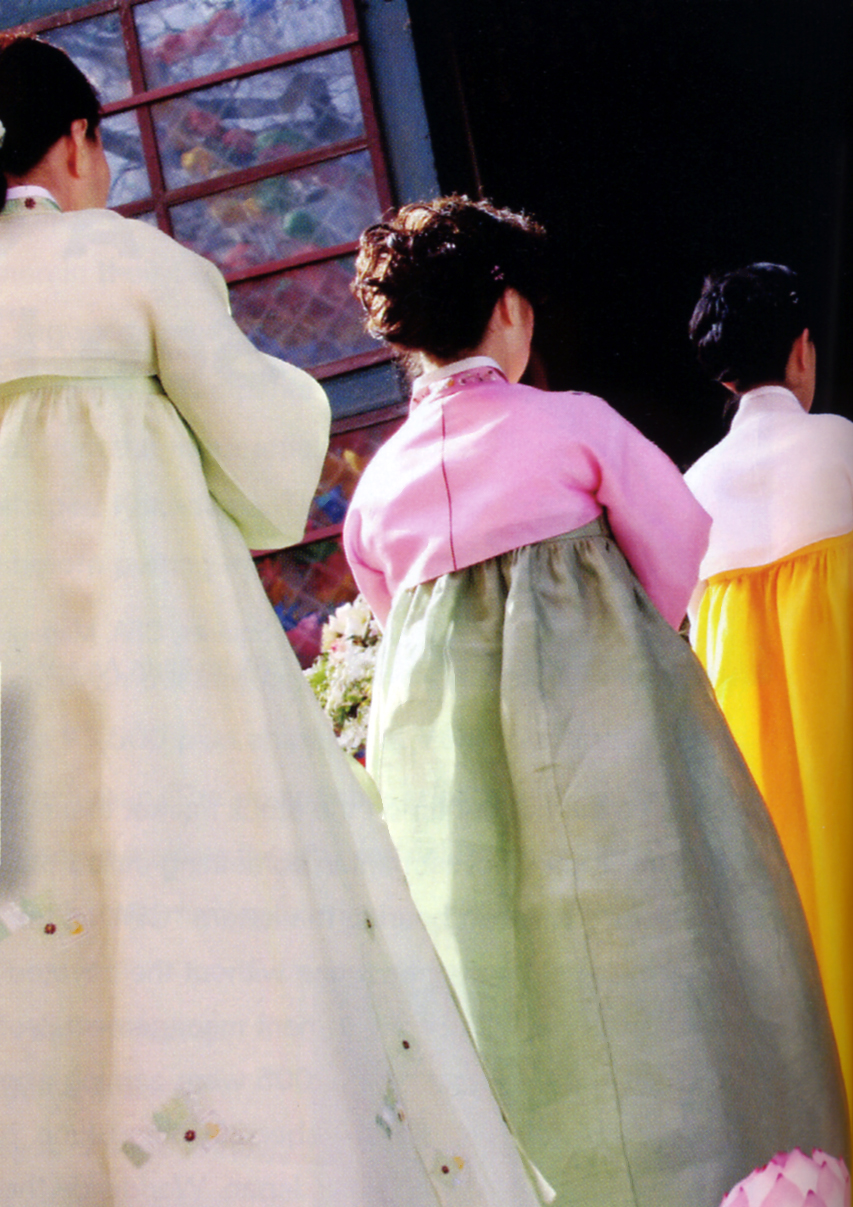 |
Where to StayThe following are two of the top hotels in Seoul ideal for both business and leisure travelers. Both hotels feature English and Japanese speaking staff. |
|
The Westin Chosun Seoul is Korea’s first international hotel. This classic hotel was built in 1914 with the first running water, elevator and ice cream in the country, attracting celebrities like Marilyn Monroe and Bob Hope. Rebuilt in the 1960s and fully renovated since then, The Westin Chosun is within walking distance of the headquarters of major international banks, local government offices, historic landmarks and thriving shopping districts.
The hotel has 462 guest rooms and 40 suites with the Westin Heavenly Bed, anti-allergy carpets, self-serve espresso coffee machines, mobile phones and high-speed Internet access. Guests can access a business center with state-of-the-art conference rooms and a drug store, barbershop, beauty salon and souvenir shop as well as the City Athletic Club, a Pilates studio, a swimming pool, steam and dry saunas and whirlpools. For corporate events and weddings, there is the Grand Banquet Hall, six mid-sized banquet halls and conference rooms.
The Grand Hyatt Seoul
Written by Seoul JournalThe Grand Hyatt Seoul is a hot spot for foreign travelers to Korea. Built in 1978 and fully renovated since then, the hotel is at the foot of Mt. Namsan and overlooks the Hahn River. It is in Seoul’s famed Itaewon shopping district where custom-tailored clothing can be made in as little as a day and good food can be had at many international restaurants.
A problem with the Hyatt, though, is that once you arrive you don’t want to leave. You can fill your weekend at the hotel’s bars, restaurants, gym, indoor and outdoor swimming pools and sauna, and by checking out the live entertainment. The Grand Hyatt Seoul has had a host of famous visitors from Queen Elizabeth to the Prince and Princess of Wales, George Bush Sr. and Bill Clinton.



